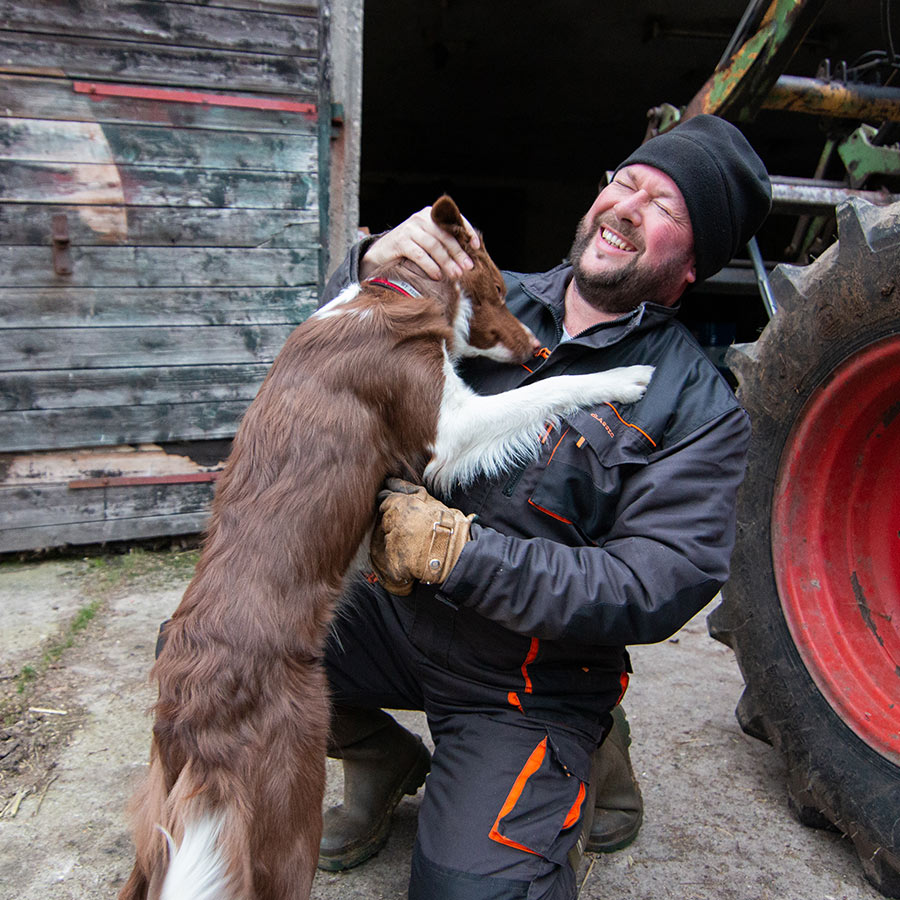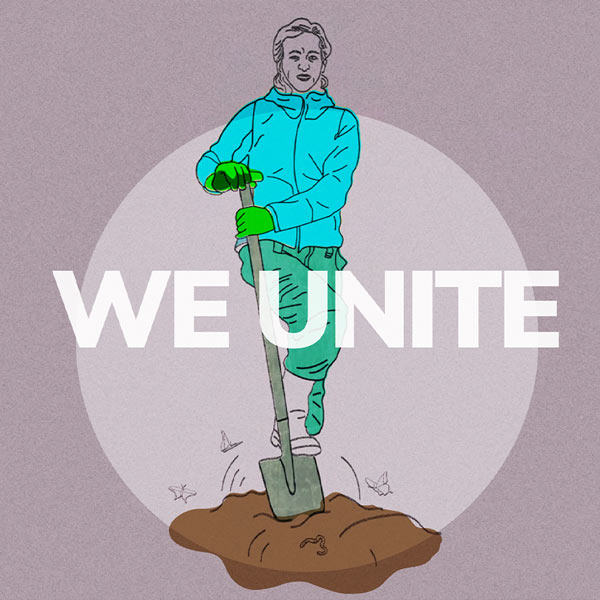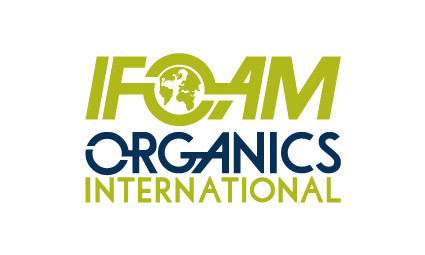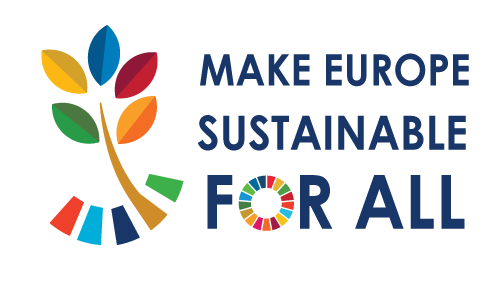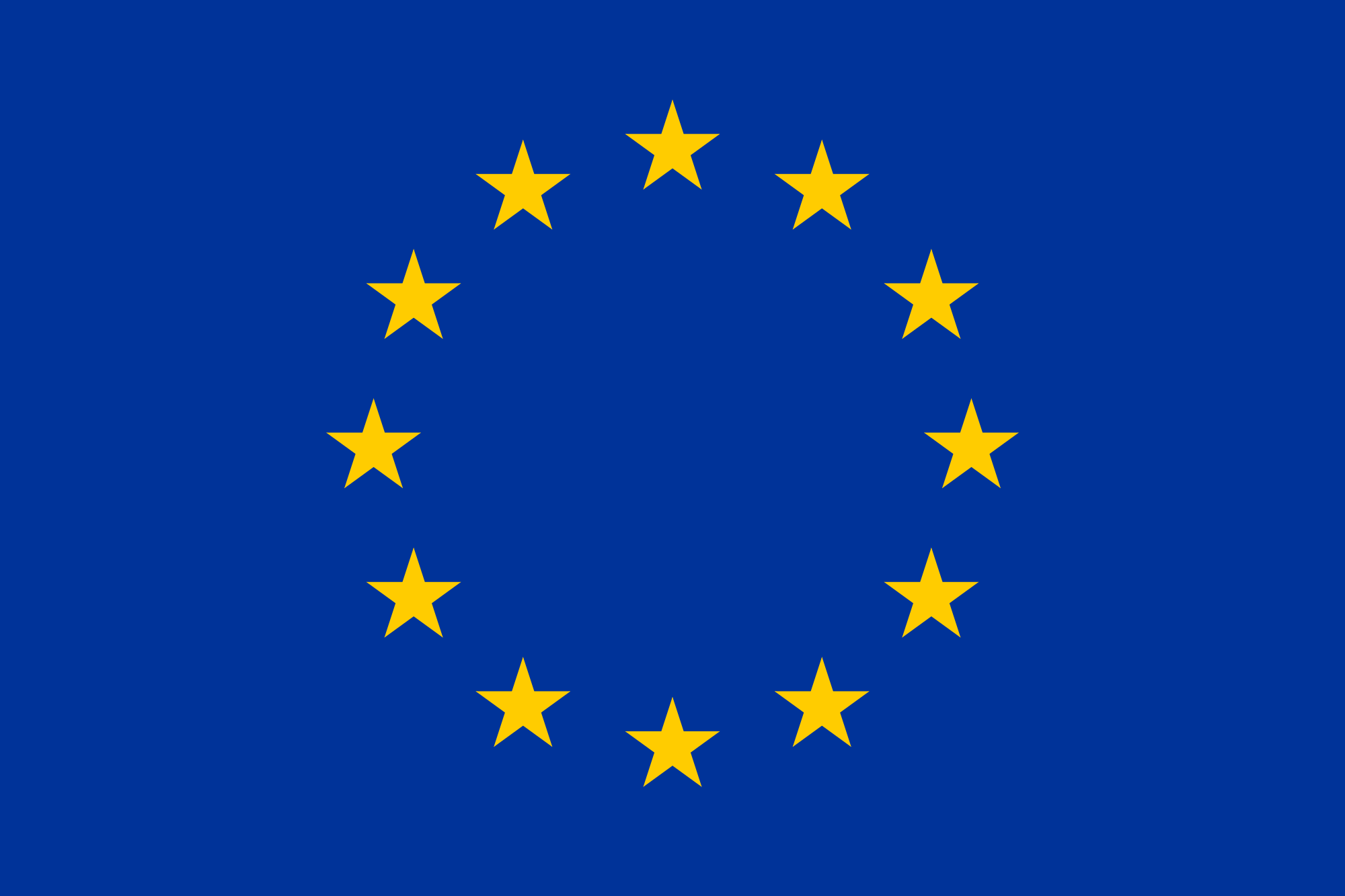The Film
The 12-minute film ‘We Unite’ is a window into the lives of two organic farmers and the reasons they join the yearly ‘We are Fed-Up’ demonstration in Germany. Along with hundreds of other farmers, they drive their tractors into the heart of Berlin where they unite with thousands of citizens calling for a better food and farming system for all.
Carlo Horn and Hanna Erz talk about why they farm organically, the impact it has on soils and yield, and how, even in times of drought, they are still able to harvest crops. They highlight the need for sustainable food systems that give farmers access to land, protect the environment, pay fair prices and provide good food for all.
Watch the Film on Youtube | Watch the Trailer
The film is also available with audio in German and subtitles in these languages:
German,
Spanish
Dutch,
Czech,
French,
Greek,
Italian,
Lithuanian,
Polish,
Portuguese,
Romanian,
Slovenian
Carlo Horn
My name is Carlo Horn and I live with my wife and children on the outskirts of Berlin. I first learned farming from my grandparents and then went on to study it at Humboldt University in Berlin. We farm organically on 140 hectares of leased land.
For me, organic farming works best as a closed cycle. There are clover grasses that only animals such as cattle, sheep or horses can eat. They then produce manure, which can be brought back out on to the fields, where it is needed to feed the crops.
Unfortunately, there is a decline in the number of farmers, yet the amount of land being farmed is not decreasing. A global consolidation process means we see more and more industrial large-scale farms and less contact between consumers and farmers. It is also becoming harder for farmers to access land.
But I see hope in the future as people show more interest in how their food is produced, moving away from mass produced convenience foods to buying locally grown fruit and vegetables. Consumers and farmers need to unite to change the system for the benefit of everyone.
“The way we farmers nourish the world, protects the soils, guards biodiversity, and protects our world."
Hanna Erz
My name is Hanna Erz. My husband Johannes and I operate a 17-hectare organic farm in Brandenburg, Germany.
We founded our farm with half a hectare of land and 160 laying hens in 2013, after completing our studies in Organic Farming & Marketing at the University for Sustainable Development Eberswalde. We invested nearly 10 years in our education, which was not time wasted, both of us completed agricultural apprenticeships and technical trainings during this period. In my opinion, the two of us and our company actually profit greatly from our education.
We are currently raising 240 laying hens and two female cows with offspring. In our fields we cultivate several varieties of vegetables as well as Hokkaido pumpkin and potatoes, which we consider to be our farm’s two speciality crops. While our vegetables and potatoes are sold here at our farm shop, the pumpkin is sold in Berlin, primarily to organic grocery stores.
Johannes and I believe that our business operates sustainably only when we utilize soil-friendly machinery. Conserving habitat and nature on our farm is important to us. We plant hedges and trees to protect against wind and utilize flowering shrubbery to make our land attractive homes for insects and birds.
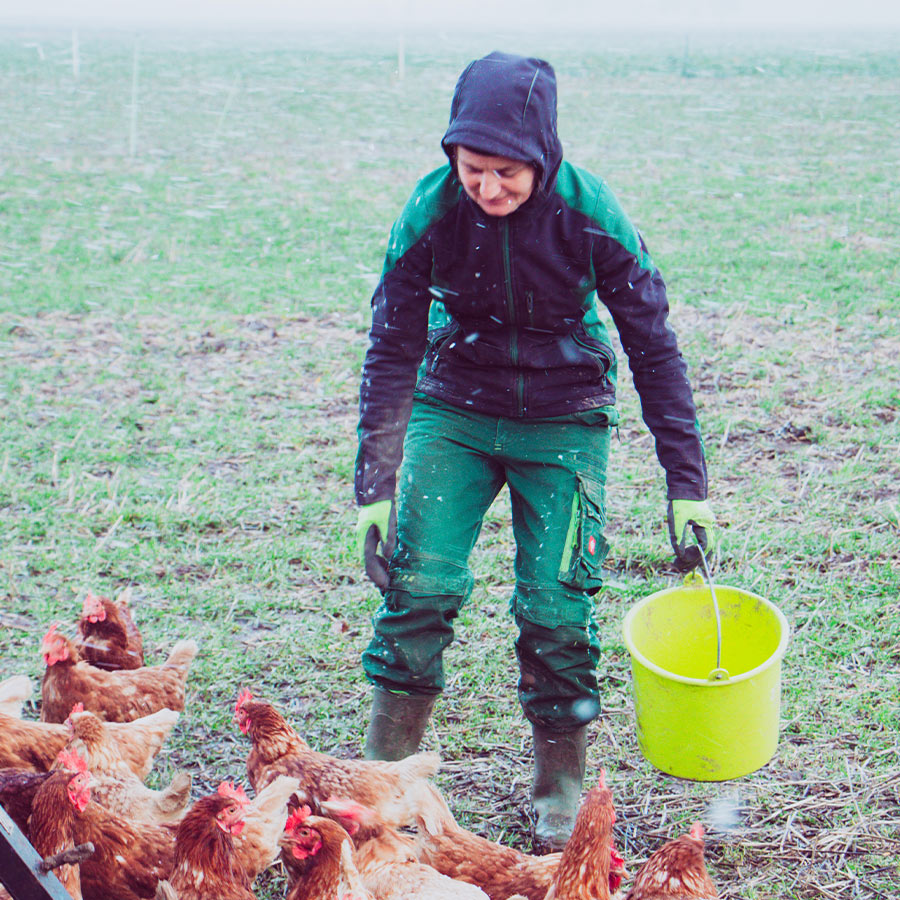
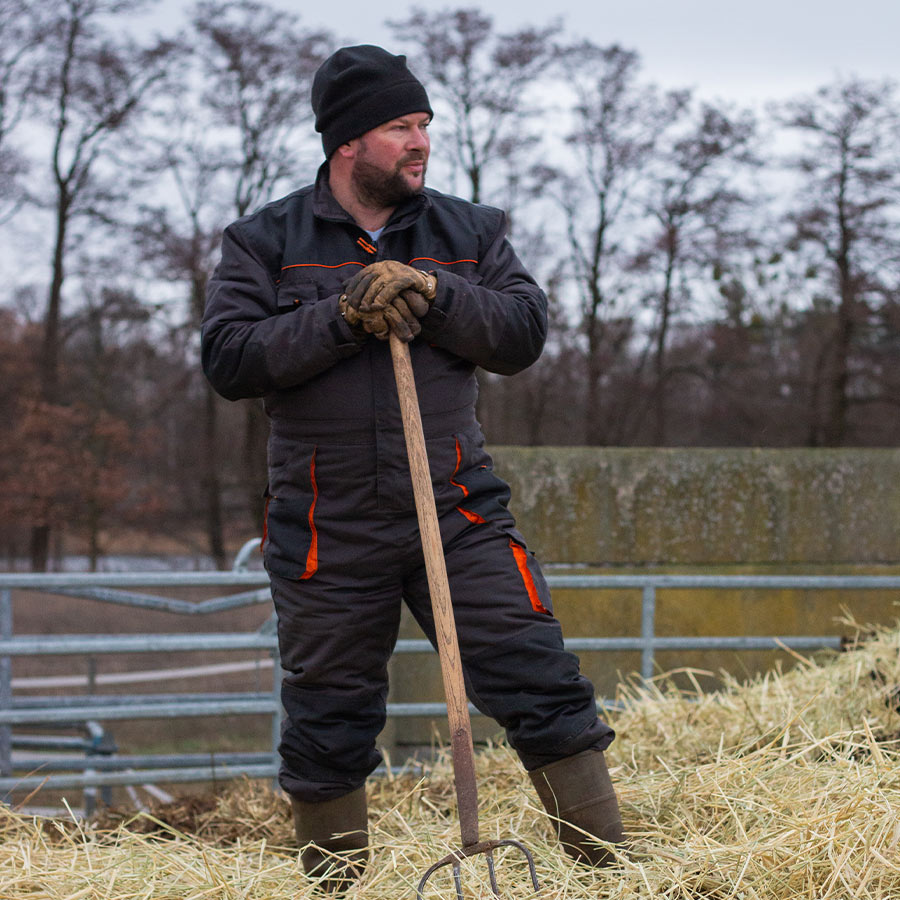
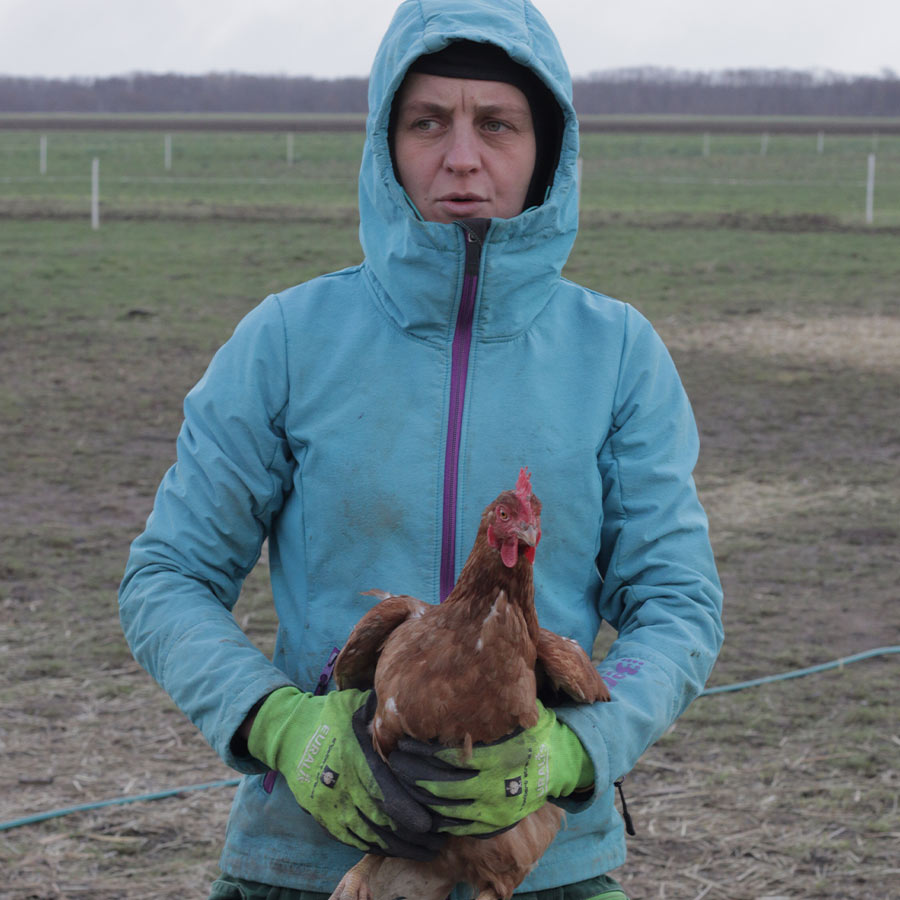
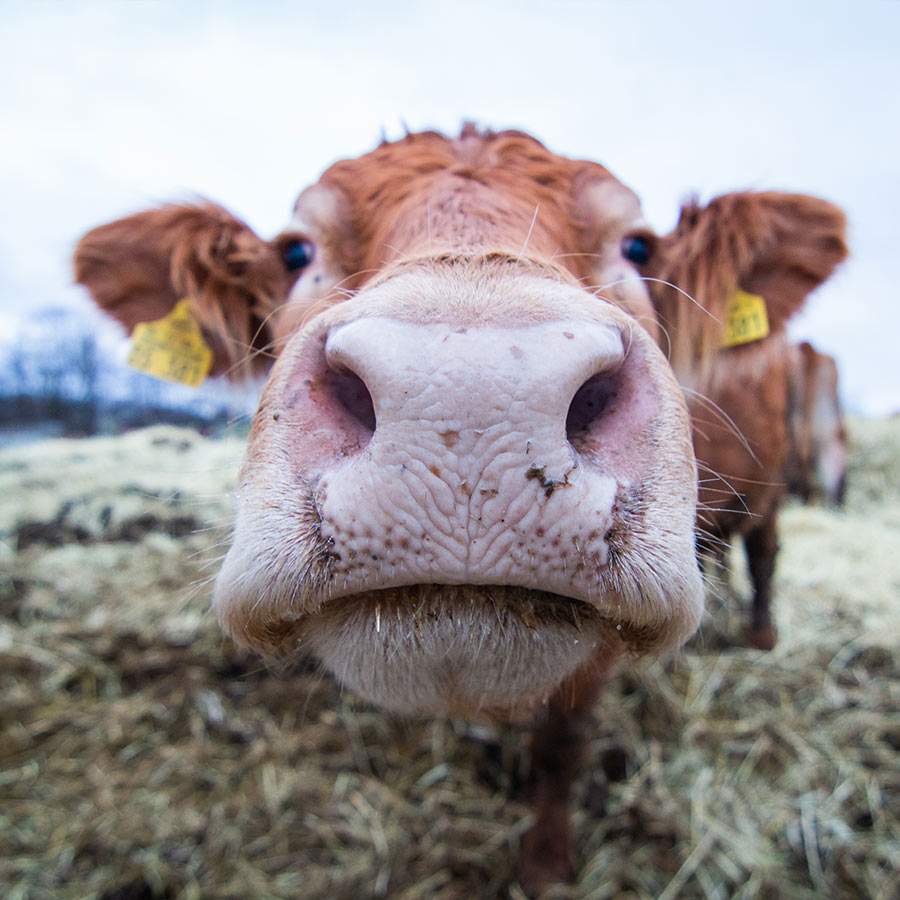
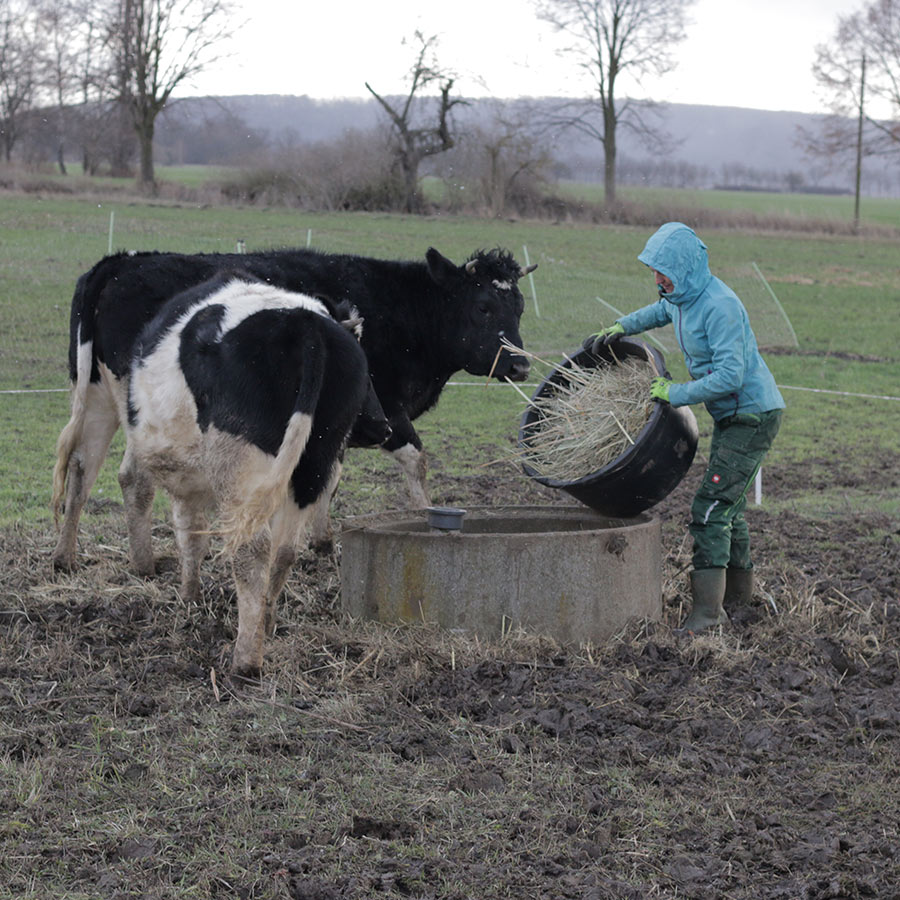
Food & Farming
There are many things that connect people the world over. Food is one of them. We all have to eat.
But what about those who grow our food? Do we know enough about the challenges they face, the work they do and how we can support them?
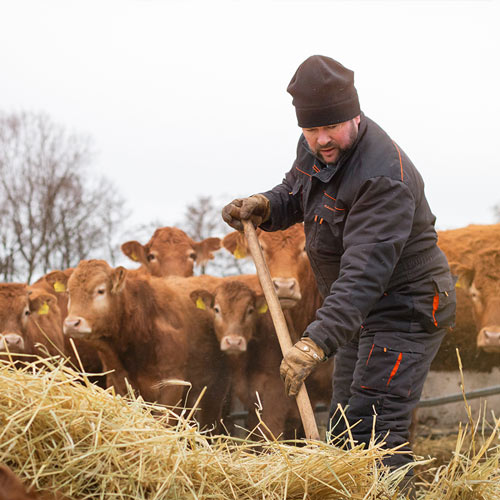
Access to Land
The number of farmers around the world is decreasing [1]. There is a global process of consolidation underway whereby large-scale operations are taking over more and more land. Land grabbing [2] and difficulties accessing land are forcing small and medium scale farms out of agriculture, something Carlo talks about from personal experience.
[2] Land grabbing is described by the European Coordination of La Via Campesina (ECVC) as: the legal or illegal control of ‘larger than locally-typical’ amounts of land by any persons or entities for purposes of speculation, extraction, resource control or commodification at the expense of peasant farmers, agroecology, land stewardship, food sovereignty and human rights.
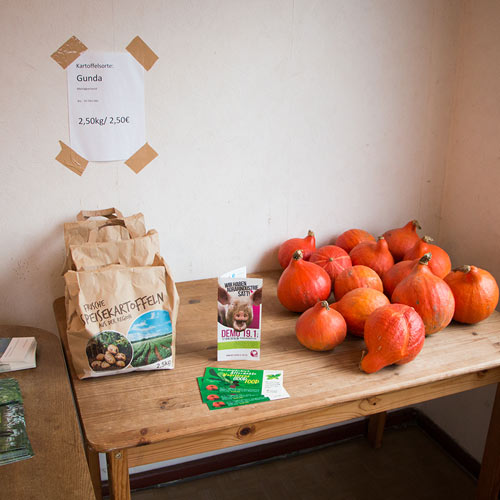
Out of Sight, Out of Mind
Fewer farmers also means less opportunities for us to interact with the men and women, like Carlo and Hanna, who grow our food. We are not always aware of the challenges farmers face and how we can support them. Hanna speaks about selling her produce directly from her farm shop and how this is a great way for consumers to support farmers.
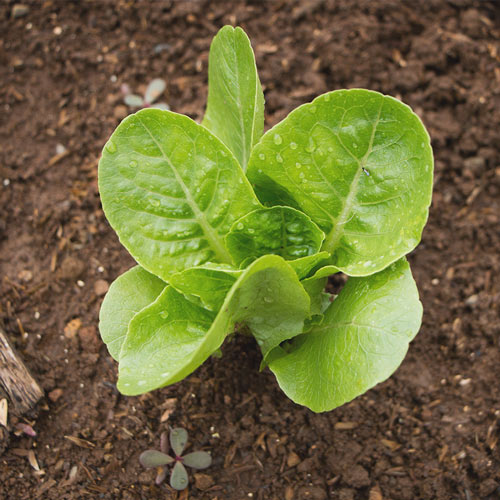
Feed the Soil, Feed the Plant
Carlo and Hanna believe that treating soil well is crucial for producing healthy food. Neither of them apply chemical inputs that pollute the soil. Hanna tells us that by caring for the soil she manages to get a good yield. Carlo talks about how despite a drought last year, he was still able to harvest crops because of the organic farming practices he applies.
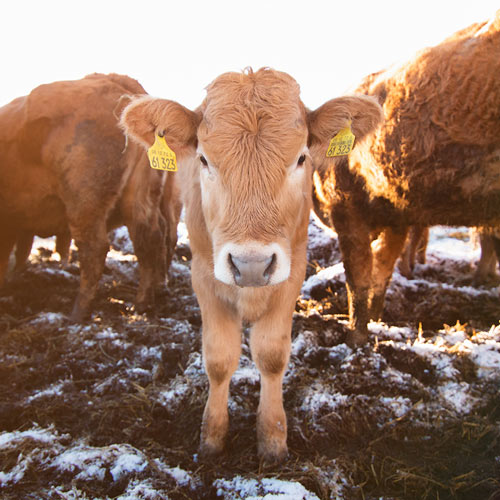
Public Money for Damaged Goods
According to the recent IPBES [3] Global Assessment Report on biodiversity and ecosystem services, financial support in OECD countries (2015) to agriculture that is potentially harmful to the environment is estimated to be $100 billion. The same study says that organic agriculture and agroecological practices can play a major role in achieving sustainable food systems, the uptake of which can be supported by policy-makers. Carlo talks about the need for public money to be spent on public goods such as policies that protect biodiversity and contribute to good health and well-being for everyone.
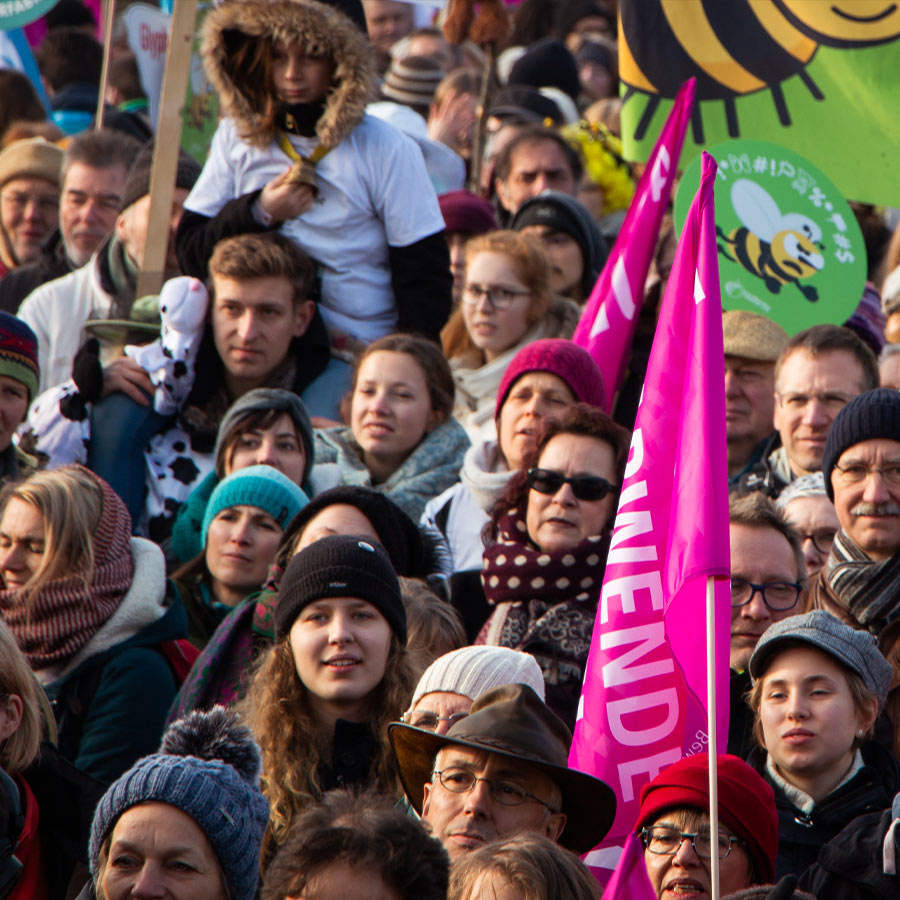
Good Food for All
We have the facts. Now we need action. Carlo and Hanna share their hopes for the future and call on farmers and citizens to unite in shaping a food system that protects soils and preserves biodiversity. A food system that pays farmers and farmworkers fair prices and doesn’t just feed people but nourishes them.
Done right, agriculture can provide Good Food for All, generate decent incomes, and protect the environment.
Learn More
Soil
Every minute of every day the equivalent of 30 football fields of fertile soil is lost, partly due to irresponsible farming practices.
This is having a huge impact on food security, public health and well-being, as well as our planet. Soil contamination from pesticide residues has become a major threat to soil quality and soil functions. Pesticides don’t just kill their target pests, many also kill beneficial organisms living in the soil, such as pollinators and pest predators, and pose health risks to wildlife.
Things to know about soil:
- Healthy soils are like sponges absorbing water in times of heavy rainfall and releasing it in times of drought.
- Healthy soils absorb huge amounts of carbon from all around us. By using sustainable farming techniques such as composting and crop rotations farmers can significantly enhance soil-carbon sequestration.
- There are lots of other ways to increase carbon soil levels such as planting hedges at field boundaries and longer grazing periods in pasture management.
- Consistently increasing the amount of carbon in our soils can help slow down climate change and its impact on the planet.
Factsheet
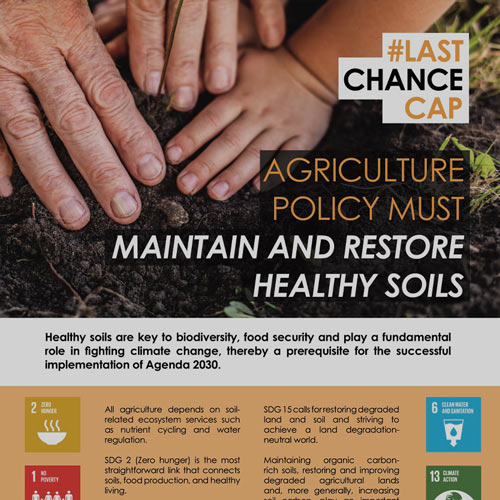
.pdf, 3.3mb
Biodiversity
Biodiversity, the variety of life found on earth, is the foundation of all agriculture. It supports our food supply from the soil to the delivery of vital ecosystem services such as pollination.
According to an IPBES Global Assessment Report on biodiversity and ecosystem services, nature is declining globally at rates unprecedented in human history. The rate of species extinctions is accelerating, with grave impacts on people around the world now likely. Industrial agriculture has played a significant role in this. But we can still make a difference e.g. by applying biodiversity-friendly farming practices such as organic agriculture and agroecology.
Things to know about biodiversity:
- According to FiBL, organic farms have between 46 and 72 percent more semi-natural habitats and host 30 percent more species and 50 percent more individuals than non-organic farms.
- Natural areas within and around organic farms, along with the absence of harsh pesticides and chemicals, create suitable habitats for wild species. This enables species to grow both in number and variety.
- Birds, predatory insects, spiders, soil dwelling organisms and field flora benefit most from organic management.
- Habitats with numerous species are shown to better adapt to environmental changes. For instance, species rich mountain meadows erode less and allow for more stable yields during dry periods.
Factsheet
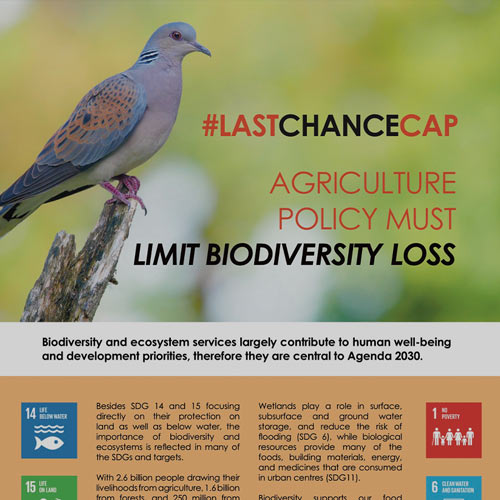
.pdf, 2.7mb
Food & Nutrition Security
For the third year in a row, hunger is on the rise. The absolute number of undernourished people, i.e. those facing chronic food deprivation, has increased to nearly 821 million in 2017, from around 804 million in 2016.
Although it may appear to be a paradox, food insecurity (unreliable access to food) can also contribute to overweight and obesity. Nutritious, fresh foods often tend to be expensive. In addition, many of the farmers who grow our food are themselves food insecure.
Things to know about food & nutrition security:
- Africa remains the continent with the highest Prevalance of Undernourishment (PoU), affecting almost 21 percent of the population (more than 256 million people).
- In South America, the PoU has increased from 4.7 percent in 2014 to a projected 5.0 percent in 2017.
- Asia’s decreasing trend in undernourishment seems to be slowing down significantly. The projected PoU for Asia in 2017 is 11.4 percent, which represents more than 515 million people
- A large proportion of the world population is also affected by micronutrient (vitamin and mineral) deficiencies. This often called “hidden hunger” because there may be no visible signs
- A sustainable shift must be made towards nutrition-sensitive agriculture and food systems if we are to provide safe and high-quality food for all.
Land Grabbing
Land grabbing is described by the European Coordination of La Via Campesina (ECVC) as: the legal or illegal control of ‘larger than locally-typical’ amounts of land by any persons or entities for purposes of speculation, extraction, resource control or commodification at the expense of peasant farmers, agroecology, land stewardship, food sovereignty and human rights.
Things to know about land grabbing:
- Up to 2.5 billion people depend on indigenous and community lands, which make up over 50 percent of the land on the planet; they legally own just one-fifth. The remaining five billion hectares remain unprotected and vulnerable to land grabs from more powerful entities like governments and corporations.
- Land grabs are fueling conflicts in dozens of countries – conflicts in which communities who assert their rights are frequently subject to violence and the assassination of their leaders.
- Land ownership in Europe has become highly unequal, in some countries reaching proportions similar to Brazil, Colombia and the Philippines – all notorious for their unequal distribution of land and land-based wealth.
- Farmland grabbing in the EU involves a huge diversity of actors, including a new asset class made up of large banking groups, pension, and insurance funds, who are controlling an ever-increasing share of European farmland.
Climate Change
Producing the food we eat from farm to fork accounts for about a third of all human-induced greenhouse gas emissions. When it comes to greenhouse gas (GHG) emissions, the agricultural sector is second only to the energy sector.
The number of extreme climate-related disasters, including extreme heat, droughts, floods and storms, has doubled since the early 1990s. This has harmed agricultural productivity contributing to shortfalls in food availability, with knock-on effects causing food price hikes and income losses that reduce people’s access to food.
Things to know about climate change
- The majority of people most vulnerable to climate shocks and natural hazards are the world’s 2.5 billion small-scale farmers, herders, fishers and forest-dependent communities, who derive their food and income from renewable natural resources.
- Direct and indirect climate-driven impacts have a cumulative effect, leading to a downward spiral of increased food insecurity and malnutrition.
- As organic farming does not allow the use of synthetic nitrogen fertilizers, focusing instead on establishing closed nutrient cycles, nitrogen levels on organic farms tend to be lower per hectare than on conventional farms which can contribute to a sustainable climate-friendly production system that delivers enough food.
- Organic agriculture minimizes energy consumption by 30-70% per unit of land by eliminating the energy required to manufacture synthetic fertilizers, and by using internal farm inputs, thus reducing fuel used for transportation.
Screenings
Interested in hosting a screening?
Contact us at communications@ifoam.bio
Upcoming Screenings:
Past Screenings:
Media Kit
Filmmakers
Initiated by IFOAM - Organics International, this is a Common Table Creative film and an iCoolKid Production, in collaboration with Thred Media.
IFOAM - Organics International works towards true sustainability in agriculture, from the field, through the value chain to the consumer. From building awareness among the public and advocating for sustainable policy, to building capacity and facilitating the transition of farmers to organic agriculture, everything we do aims to strengthen the organic movement and lead it forwards.
Common Table Creative is a production company with a passion for telling stories about the power of food and farming. They showcase the interconnected nature of our food system and how it impacts our health, our environment, and society - all around the world. CTC is on a mission to grow a more just and regenerative world and to inspire positive action around our food system.




